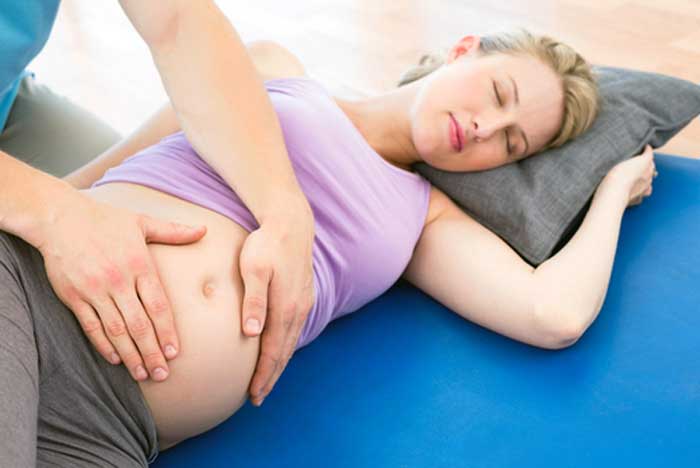More women are becoming interested in prenatal massage to help make a pregnancy easier. It's important to know the benefits and risks of prenatal massage.
Prenatal massage is designed to relieve the discomfort and stress of pregnancy while making special adjustments to normal massage practice because of the changes pregnancy makes in the body. Prenatal massage therapists are specially trained not only in the techniques of prenatal massage, but also to recognize signs of prenatal disorders, such as preeclampsia, that can endanger the mother or child.
In general, prenatal massage has far more benefits then risks, but it is still worth considering both benefits and risks before scheduling an appointment.
What is Prenatal Massage Like
In the early stages of pregnancy, prenatal massage is very like a regular Swedish massage, except that the massage therapist will avoid sensitive areas of the body, as well as acupressure points that are known to trigger labor, and will check for excessive swelling or other danger signs.
In later stages of pregnancy, the massage is given with the mother-to-be lying on her side, with bolsters, pillows and cushions supporting the legs and belly for comfort. Some tables, specially designed for prenatal massage, will have a whole cut in the center of the table so the mother-to-be can lie comfortably on her stomach.
Benefits of Prenatal Massage
Reduces stress levels
Eases back and foot pain caused by changes in posture
Reduces swelling of feet and ankles
Improves skin elasticity, reducing stretch marks
Improves sleep
Improves digestion
Relaxes and soothes baby
Reduces pelvic pain
Additionally, a prenatal massage therapist can frequently recognize early signs of dangerous complications, reducing the risk to both mother and child.
Risks of Prenatal Massage
Dizziness and nausea
Untrained therapist causing injury
Too deep massage of back or abdomen causing spotting or cramping
Inducing labor
Muscle soreness
For the most part all of these side effects can be avoided, as long as the therapist knows what he or she is doing. Nausea and dizziness can occur after any massage, and are not uncommon during pregnancy. Avoid eating immediately before a massage, and get up carefully to avoid problems. Muscle soreness is generally the result of not getting enough fluid after a massage. Drink a lot of water in the first two hours after a massage to prevent this.
When to Get Prenatal Massage
A mother-to-be can get prenatal massage at any point during a healthy pregnancy. In a high risk pregnancy, or when there are medical complications it's a good idea to talk to both your obstetrician and a prenatal massage therapist. Be aware that some doctors who are not familiar with massage may say it is or is not all right to get a massage, without knowing what the real risk factors are.
Prenatal massage can be a wonderful way for a mother-to-be to pamper herself, and ease the discomforts of pregnancy. The risks and side effects of prenatal massage can be avoided with a bit of care. However, in a high risk pregnancy, it's a good idea to consult an ob-gyn before getting a massage.

